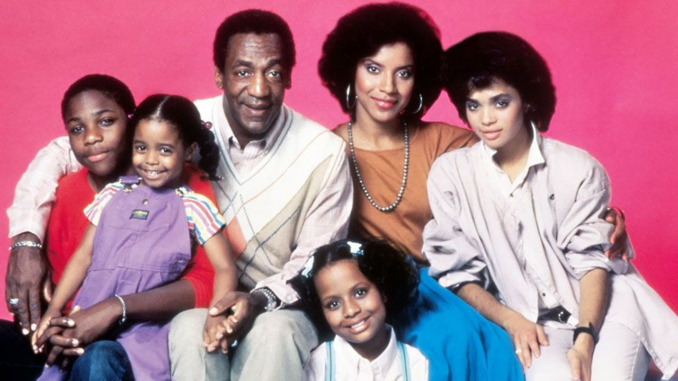
When The Cosby Show debuted in 1984, it wasn’t just another sitcom; it was a cultural milestone. At the time, the portrayal of African American families on television was limited, often relegated to negative stereotypes. Shows like Good Times and The Jeffersons were exceptions to the norm, but they still showcased working-class families. What The Cosby Show did was revolutionary: it presented a successful, loving African American family as the norm.
The Huxtables were professionals—a highly educated obstetrician and a successful lawyer—living in a beautiful Brooklyn brownstone. They weren’t defined by poverty, crime, or racial struggles but were instead portrayed as relatable, complex individuals with real-life issues that anyone could understand.
Breaking Stereotypes
Before The Cosby Show, Black characters on TV were often shown as struggling to get by or as comic relief. Shows like Sanford and Son or Maude presented African American characters in ways that did not reflect the diversity of experiences within Black communities. The Cosby Show, however, defied this trend by depicting a sophisticated, upper-middle-class African American family. Cliff and Clair Huxtable were not just likable characters; they were successful professionals who had worked hard to get where they were, and their children were portrayed as intelligent, thoughtful, and ambitious.
For many viewers, this was a revelation. The show proved that Black families could be portrayed in a positive light without resorting to stereotypical tropes. It showed that African Americans could be doctors, lawyers, and professors—not just athletes or entertainers. The Huxtables were aspirational but also relatable. They weren’t perfect, but they were real.
This portrayal of Black excellence had a profound impact on African American viewers. It allowed young Black children to see themselves in roles that were often denied to them in other areas of media. It demonstrated that success was achievable, that they too could aspire to greatness, and that their stories were worthy of being told.
A New Generation of Role Models
One of the lasting legacies of The Cosby Show was its ability to create positive role models. Cliff Huxtable, portrayed by Bill Cosby, became an iconic figure in American television. He was a father who cared deeply for his children, offering them guidance and wisdom in ways that felt both humorous and meaningful. Clair Huxtable, played by Phylicia Rashad, was strong, intelligent, and an equal partner in both her marriage and career. She became a symbol of strength and independence for many women, especially African American women, who had rarely seen such portrayals on television.
Their children, Denise, Theo, Sondra, Vanessa, and Rudy, were not just props in the background; they were fully developed characters who had their own ambitions, flaws, and unique personalities. Whether it was Theo’s struggles with school or Denise’s journey of self-discovery, viewers could relate to the challenges these characters faced.
By providing viewers with such positive role models, The Cosby Show allowed African American families to see themselves reflected on television in a way that had never been done before. It was a show that instilled pride, hope, and the belief that success was within reach.
Changing the Narrative of African American Life
The impact of The Cosby Show cannot be overstated. It changed the way African American life was depicted on television, creating a more nuanced and complex narrative. It helped to normalize the idea that Black families could be loving, prosperous, and educated, and it paved the way for other shows to follow suit. A Different World, a spin-off of The Cosby Show, continued to explore issues of race, identity, and family but also provided more opportunities for young Black actors, writers, and directors to tell their own stories.
The success of The Cosby Show also had a ripple effect on other industries, including film and advertising, where African American actors and stories were increasingly seen as marketable and desirable. This success helped to break down barriers and opened doors for more diverse voices to be heard.
Conclusion: A Celebration of Progress
In the decades since The Cosby Show first aired, its influence has been felt far beyond the world of television. It was a show that celebrated the idea that African American families could be just as multifaceted and successful as any other. By doing so, it created a legacy of positive representation that has inspired countless others to follow in its footsteps. The impact of The Cosby Show on African American representation is profound, and its legacy lives on in the diverse television landscape we see today.
